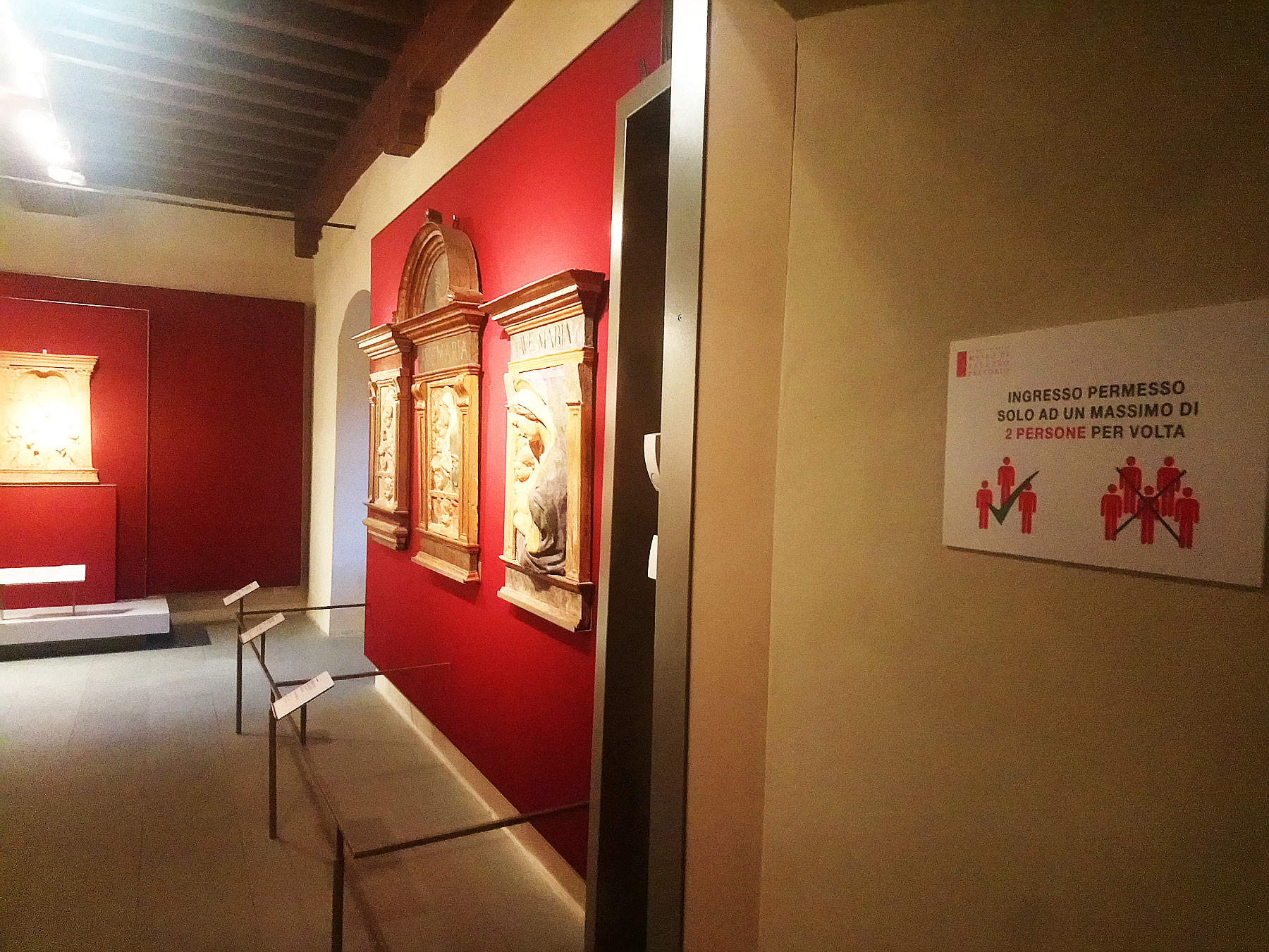Museums continue to be one of the places where there is the least risk of Covid-19 infection: we have been saying this on these pages since April of last year, and the fact that no museum has so far proved to be a place where the infection has spread comforts this idea, which is, after all, well known to anyone with a modicum of knowledge of the Italian museum landscape. When, however, the government establishes protocols for visiting museums safely, it probably has in mind only the large tourist museums, those touted by large groups of visitors that we used to see crowding into long lines on holiday weekends, or during free Sundays. Well: these museums represent a tiny percentage of the total. The Italian museum landscape is mostly made up of small and medium-sized museums, located throughout the territory and not only in large tourist cities or art cities, visited on average by a few thousand visitors a year, mostly residents, and where spacing out and the absence of queues are spontaneous situations that existed even before Covid.
The compulsory reservation on weekends and holidays for all museums, imposed indiscriminately, is a crude measure, indicative of the maximalism with which the government has dealt and continues to deal with the issue of cultural reopenings; it is a measure that does not take into account the variety of this landscape, that does not take into account the fact that museums have started working again in the absence of tourists, which does not take into account the typical behavior of many visitors (and especially residents or at any rate those who do not visit museums for tourism), who do not plan their visit and often decide at the last minute, which does not take into account the low visitor numbers that characterize the vast majority of Italian museums, which are often frequented by casual visitors. It is unthinkable to force all visitors to schedule: it is far more realistic that the museum will lose the public least likely to organize every minute of their existence. What’s more, now there is also the experience of the three weekends when it was possible to test this measure, which as was widely predictable only hurt the smaller museums, since their halls remained, as usual, mostly empty (and even in the larger museums there were really no resisters).
 |
| Anti-Covid rules at the Palazzo Pretorio Museum in Prato. |
This is what many have been saying over the past few days, starting with the Italian committee of ICOM, which has been very clear: the reservation requirement is harmful and counterproductive, because it risks driving visitors away instead of attracting them. Think of a potential visitor who finds time at the last minute for a visit, or a visitor who simply gets the urge to visit the museum on a Sunday afternoon because he or she may be out and about in his or her town and walks past the entrance: does it make sense to turn him or her away at the entrance, perhaps when the museum is empty? The small museums of Tuscany, which like ICOM have written to Minister Dario Franceschini, also rightly note that the risk of overcrowding, i.e., the problem toward which the rationale for the measure is directed, did not even exist in so many facilities before Covid. The Tuscan museums themselves then point out that compulsory reservation disincentivizes casual visitors, and that it also creates a paradox, i.e., it results in the closure of the museum in the absence of reservations-a situation that could be perceived as a disservice by a potential visitor who happens to pass by the museum. And, of course, it is superfluous to point out the extent of the economic damage this measure creates for museums and the outside professionals who work there.
Just as reservations are not required to go to the bar or restaurant, the same should apply to the museum: if the restaurant is full, the customer waits his or her turn. The same could happen for museums: at most, the visitor who wants to make a reservation will have the advantage of not having to wait. But it does not make sense to tie a visit to a reservation requirement, especially for smaller museums: after almost a month in which we have been able to verify that museums are in no danger of “assemblages,” we could finally begin to think about abolishing mandatory reservations. Perhaps starting precisely with the least frequented museums: last year, the scientific technical committee for the Covid emergency, in its guidelines for the reopening of museums, had established in the threshold of one hundred thousand visitors per year the limit from which to diversify the measures. If, therefore, this rule is really necessary, it can at most be maintained for museums that exceed this number of visitors. For everyone else, it is an unreasonable measure. And if it is really necessary for everyone, at least allow access to the unbooked if there is free space available: if the museum is semi-deserted, the possibility of preventing entry to the unbooked is not a guarantee of security, it is an indication of stubborn obtuseness.
Warning: the translation into English of the original Italian article was created using automatic tools. We undertake to review all articles, but we do not guarantee the total absence of inaccuracies in the translation due to the program. You can find the original by clicking on the ITA button. If you find any mistake,please contact us.